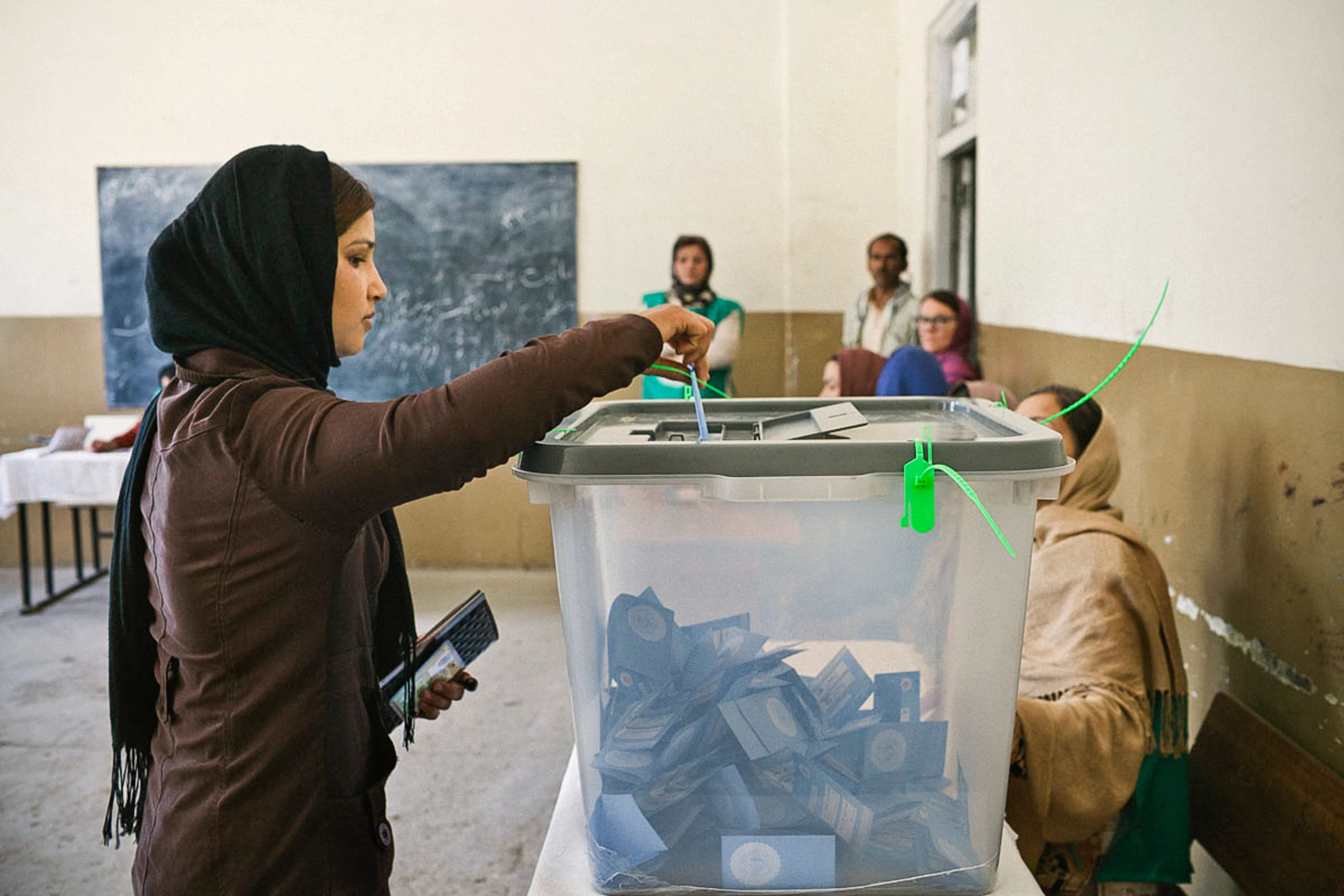Do Governments Listen To Their Citizens?
November 1, 2022

From Tehran to Santiago, thousands of people have taken to the streets in the hope that their voices will be heard by their governments and their demands responded to by those in power. In recent years, while the global voting rate has fallen, the number of protests around the world has increased. Across all contexts and political systems, protest movements have emerged where people feel excluded, un-heard and marginalized. 6 in 7 people felt insecure even before the pandemic and the multiple crises facing the world today only adds to this sense of uncertainty, as the distance between the decisions made by policymakers and the lives of ordinary people appears to widen.
To better understand and measure progress towards inclusive and responsive decision-making, UNDP Oslo Governance Centre has released a new policy brief on SDG indicator 16.7.2. The brief unpacks the indicator measuring political efficacy – people’s perception of having a say/influence over decision making processes. It explores why the measure of political efficacy is a necessary part of achieving sustainable development, including the need to further disaggregate the data for a more granular picture of who is being left behind in participating in decision-making processes.
As custodian for this indicator, UNDP is working to support countries to collect data on how people perceive the inclusiveness and responsiveness of public decision-making. This measure can be critical to gauge political engagement of the population but also potentially to measure legitimacy of policy decisions being made and how it affects different population groups. This year, with the finalization of the SDG 16 Survey tools, countries were invited to report on SDG 16 indicator 16.7.2 for the first time.
Although data on this indicator remains scarce, the current policy brief highlights two groundbreaking examples of National Statistical Offices taking the lead in monitoring political efficacy, with surprising results.
- In South Africa, around 10% of respondents thought that none of the five key national institutions[1] ever listened to or acted on issues that the community raised. Large regional differences were observed, with those living in richer provinces expressing lower political efficacy.
- In Colombia, 27% of the population feel like they “have a say in what the government does,” with a lower percentage feeling like they “have an influence in politics.” Across age groups, political efficacy increased with age, with younger people less likely to feel like they can have an impact.
While representation of women and other marginalized groups in parliaments, public service and the judiciary – as captured by indicator 16.7.1 – can help increase inclusiveness of decision-making, it is only one side of the story. We also need to understand whether people feel that they (and not just their representatives) have decision-making power at the individual level. Greater political efficacy can indicate that people have a sense of greater agency, expanding opportunities and scope for human development to allow them to lead lives they value.
And there are many reasons to believe that policymakers are interested in this type of information. Indeed, confronted with more and more complex and difficult issues such as climate change, some governments, including at the local level, have turned to deliberative governance approaches, which aim to give people a direct hand in shaping policies. Deliberative processes such as “Citizens' Assemblies,” “Citizens’ Juries,” and “Deliberative Polls” allow forums for deeper engagement in policy making. These approaches have been tested in a variety of contexts globally – from evaluating constitutional amendments in Mongolia to designing local budgets in Colombia. Studies have indicated that diverse group deliberations can come up with better solutions, bolster participants trust and confidence in public institutions, increase perceptions of fairness and legitimacy of decisions and foster social cohesion.
The most daunting challenges assailing our societies today require far-ranging collective responses and shifts in social norms, yet low interpersonal trust and political polarization are posing serious impediments to our ability to come together and tackle emerging threats. At UNDP, we are committed to expanding the space for civic engagement and broadening the mechanisms to allow for dialogue and more inclusive participation for all groups. As we have seen with youth activists fighting for climate action or with women groups advocating for gender equality, there is tremendous collective energy to be harnessed into political action. It’s time for governments to listen.
[1] Leaders of community organizations/traditional leaders, police officials, local elected officials/councillors, members of national parliament and the Public Protector.

 Locations
Locations